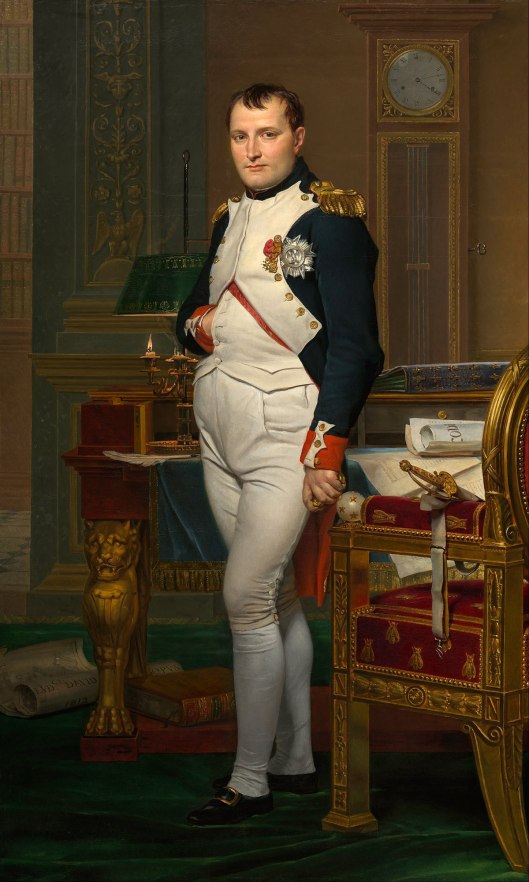Tags
Baden, Battle of Austerlitz, Bavaria, Berg, Cleves, Confederation of the Rhine, Emperor of the French, Hesse, Holy Roman Empire, Napoleon Bonaparte, President of the College of Kings, Württemberg
From the Emperor’s Desk: although I dealt with the Confederation of the Rhine in yesterday’s post, I thought today I would dig a little deeper.
After the Battle of Austerlitz, Napoleon established the Confederation of the Rhine in 1806. A collection of German states intended to serve as a buffer zone between France and Central Europe, the creation of the Confederation spelled the end of the Holy Roman Empire and significantly alarmed the Prussians.
The brazen reorganization of German territory by the French risked threatening Prussian influence in the region, if not eliminating it outright. War fever in Berlin rose steadily throughout the summer of 1806. At the insistence of his court, especially his wife Queen Louise, Friedrich Wilhelm III decided to challenge the French domination of Central Europe by going to war.
The founding members of the confederation were German princes of the Holy Roman Empire. They were later joined by 19 others, altogether ruling a total of over 15 million subjects. This granted a significant strategic advantage to the French Empire on its eastern frontier by providing a buffer between France and the two largest German states, Prussia and Austria (which also controlled substantial non-German lands).

Formation
After Prussia lost to France in 1806, Napoleon cajoled most of the secondary states of Germany into the Confederation of the Rhine. Eventually, an additional 23 German states joined the Confederation. It was at its largest in 1808, when it included 36 states—four kingdoms, five grand duchies, 13 duchies, seventeen principalities, and the Free Hansa towns of Hamburg, Lübeck, and Bremen.
On July 12, 1806, on signing the Treaty of the Confederation of the Rhine in Paris, 16 German states joined together in a confederation (the treaty called it the états confédérés du Rhinelande, with a precursor in the League of the Rhine).
The “Protector of the Confederation” was the hereditary office of the Emperor of the French, Napoleon. On August 1, the members of the confederation formally seceded from the Holy Roman Empire,
According to the treaty, the confederation was to be run by common constitutional bodies, but the individual states (in particular the larger ones) wanted unlimited sovereignty. Instead of a monarchical head of state, as the Holy Roman Empire had had, its highest office was held by Karl Theodor von Dalberg, the former Arch Chancellor, who now bore the title of a Prince-Primate of the confederation.
As such, he was President of the College of Kings and presided over the Diet of the Confederation, designed to be a parliament-like body although it never actually assembled. The President of the Council of the Princes was the Prince of Nassau-Usingen.

Napoleon I, Emperor of the French
In return for their support of Napoleon, some rulers were given higher statuses: Baden, Hesse, Cleves, and Berg were made into grand duchies, and Württemberg and Bavaria became kingdoms. Several member states were also enlarged with the absorption of the territories of Imperial counts and knights who were mediatized at that time.
They had to pay a very high price for their new status, however. The Confederation was above all a military alliance; the member states had to maintain substantial armies for mutual defense and supply France with large numbers of military personnel. As events played out, the members of the confederation found themselves more subordinated to Napoleon than they had been to the Habsburgs when they were within the Holy Roman Empire.
The rest of the history of the Confederation of the Rhine goes beyond the scope of the dissolution of the Holy Roman Empire so I’ll leave that for another time. Suffice it to say, the Confederation of the Rhine collapsed in 1813, in the aftermath of Napoleon’s failed invasion of the Russian Empire. Many of its members changed sides after the Battle of Leipzig, when it became apparent Napoleon would lose the War of the Sixth Coalition.







